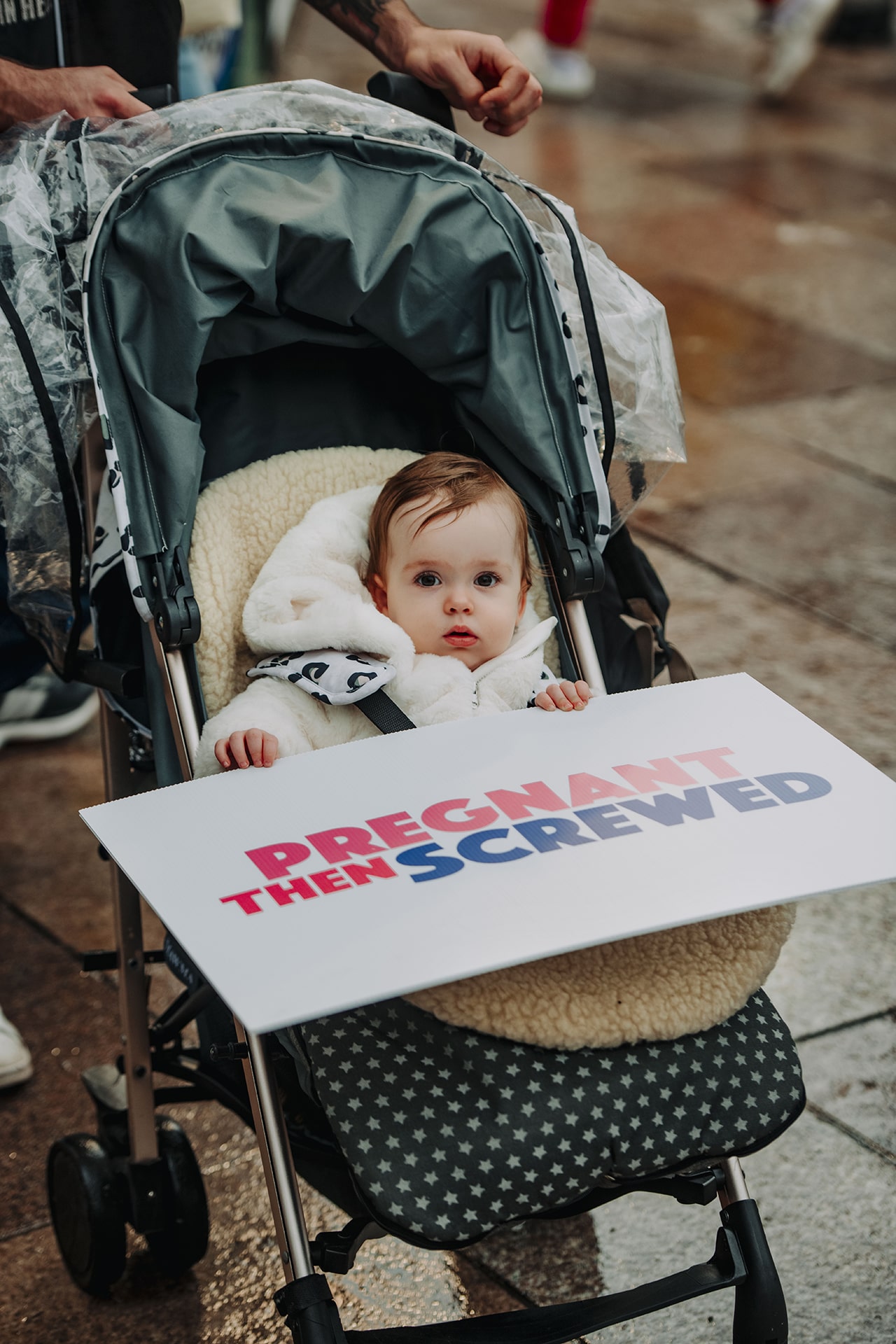1. Are there any thoughts / discussions in these policies relating to partners/dads and their impact on discrimination against women / gender equality?
Yes, we make sure that the language in the information we share is inclusive and throughout our content, refers to partners. However, the main focus is the women that are experiencing reproductive health issues.
2. Does the content cover how best to support the partners of the mother as well?
The focus throughout this training is to focus on your employee. So if you are supporting the partner of someone who has experienced miscarriage, etc. hopefully our content will support you to have open, supportive conversations.
3. Would this cover return to work? From bitter experience I know this is a point where there is a lot of discrimination.
This training does provide some information on employees returning to work with regards to flexible working and hybrid working. We don’t have a particular module on returning to work as part of the accreditation, however, this is a topic we work with organisations on through other training. You can found out more on our website here.
4. I am interested in how this will work for large employers? My org is complex and has 8000+ staff
This particular pilot project is specifically for SME’s with 25 -250 employees. If you would like information on other training provided by Pregnant Then Screwed outside of this pilot please visit – here.
5. How can I socialise this wider with the broader HR that I work in?
Please share this information!
6. Great that this is a programme you can follow at your own pace – what is the “ideal” timeline/time investment this ought to take?
The training will be live on Monday 25th March and we expect everyone to have completed the training by 25th October and interviewed by November 2024.
7. Is there an application process for public sector organsiations who are interested in exploring this (or would this be via the general/main offering you provide)?
The application for all employers with 25 -250 employees is the same. If your public sector organisation is larger than this then please visit our training page here.
8. Once you launch the main programme after the pilot, is there a view on how this might upscale beyond SMEs?
We are hoping to be able to scale this training to a wider range of employers once the pilot programme is finished.
9. Some of our employees are based in India (circa 30 people), with the context of legal requirements etc – would this be a UK only programme?
This programme is currently for UK businesses (specifically England and Wales) but we hope to be able to develop this further to support internationally later in the project.
10. If a company is further along in their journey on this work and isn’t accepted into the pilot, are there plans for any type of ‘fast track’ accreditation in the future?
Currently the accreditation is only for those businesses who have completed our full training.
11. Can I assume that all intersectionalities are covered?
Yes, we make sure that our content is inclusive and covers all areas (adoption, surrogacy, LGBTQ+ etc) However, the focus is on women employees who are experiencing reproductive health issues.
12. What support could you offer for persuading an 80% male senior leadership team that this time is a valuable investment?
1. Story sharing is really important. You could use the resources from the launch session, the PTS website or social channels as a start point so people understand the scale of the problems. If you have people within your organisation who feel comfortable sharing their story, that could be great too – hearing first hand the impact and realities of facing fertility treatment, miscarriage and dodgy pregnancy support in the workplace for example, can highlight where lived experiences and policies DON’T go hand in hand always.
2. Figure out what their frame of reference is. Generally speaking you can hook lots of people in with commercials. So things like the average cost to recruit in the UK (30k), research from pretty much any consultancy which links the relationship between gender diversity and commercial performance and some of your own internal stats or metrics that are showing pain points.
3. Without knowing your individual company, I’d also recommend picking some of these people off individually too – in a group setting it can be a lot harder. That way, you could also get someone on board to then influence their peer group.
13. If you aren’t successful in the pilot, will there be an opportunity to be involved at a later date?
Yes, absolutely! As discussed this is just our initial pilot, we hope to be able to roll this training out further to more employers after this trial.
14. We are a charity based in NI, can we apply?
Unfortunately not during the pilot scheme as our training provides you with legal based content which is only relevant to England and Wales.
15. The accreditation lasts for a year, how is it maintained after then?
There will be further opportunities for refresher training and employer survey/engagement. Further details will be available at the end of 2024 based on trial feedback.
16. We’re a very small business (below 20 employees) but with a high proportion of employees identifying as female. I think we would be lacking leadership support to join the pilot, however feel the content of the accrediting program would be brilliant to allow us to begin upskilling/ creating policies/ training line managers. Will there be an opportunity to access the training, without joining the pilot?
We can definitely support with employers with below 20 employees check out our training options here.
17. You mention questions such as whether the company offers enhanced parental leave etc. Is this [training] open to companies who are on a journey with regards to this and see this programme being a part of supporting that journey? Or, are you only likely to be successful if you already offer a lot of ‘family friendly’ policies etc?
We are definitely looking to work with a range of employers who are on a journey and who can see committing to this work as a step in the right direction. We also believe this is where we can make the most difference to women at work.
18. Does this programme take an intersectional approach to the training programme given the mention of being “fully inclusive” – e.g you have mentioned how to support women and mothers but not all people who become pregnant may not identify as a woman or with any specific gender. Do you take into account the factors pertaining to age, race, disability etc.?
We have ensured that throughout the training we have used inclusive language to ensure that people who face reproductive health issues in the workplace are at the centre of this work. As this work is funded by the DHSC, we have had to fulfil their funding criteria of supporting women in the workplace.
19. We’re a global company with approx 30 employees in the UK and 20 in the US. Although it’s aimed at the UK from a legal perspective, could we still apply to be included in this
Yes, you could apply for us to support your 30 UK employees as long as they are England/Wales based.
20. How do you ensure people have really understood the great content by the end of the programme opposed to taking their word that they have watched/read it?
The platforms that we will host the content on will show us how many people have watched the content fully, and downloaded the PDFs. We will also be ensuring all employees complete surveys and take part in interviews so we can monitor progress.
21. Do we need to deliver all six topics, especially if hybrid working is not possible?
Yes, in order for you to meet the qualifying criteria of the accreditation, you must complete all six modules.
22. If we grow beyond 250 employees during accreditation, what happens?
We ask that you are within 25-250 upon application to the programme.
23. If I’ve filled out the questionnaire, do I need to do it again for the application?
No, if you‘ve already filled it out, we will be in touch if you‘re successful.
24. Does the training integrate with company Learning Management Systems (LMS)?
No, it’s a standalone. However, all of the training resources are downloadable so you can integrate it into your LMS butyou’d need to do this manually.
25. Do all managers need to participate, or is it optional within the organisation?
To pass the accreditation, we require 75% of managers to complete the full six modules.
26. How much does accreditation cost after the pilot year?
We don’t have this information yet. It will be based on the feedback from the accreditation, the impact it has on the organisations involved and a lot more in-house conversations.
27. Is there a rough estimate of the time needed per module?
We would advise 10-15 hours for each person to complete all six modules. However, this is a very rough estimation and purely based on feedback from the first round.
28. Is the pilot open to charities, and what about companies with under 25 employees?
Yes the pilot is open to charities but for those under 25 employees, we are unable to accept into the accreditation during the pilot stage. Please refer back to the PTS website for more information about our training.
29. Can we roll out specific modules if they align with our company policies?
It’s important all managers access the training in full before rolling it out. Although it’s great if they do align with your policies, we want to focus on the managers knowledge and confidence around these topics and how it will impact their leadership – as well as policies.
30. Where can we find the application form?
https://pregnantthenscrewed.typeform.com/to/EkX7pDIk





